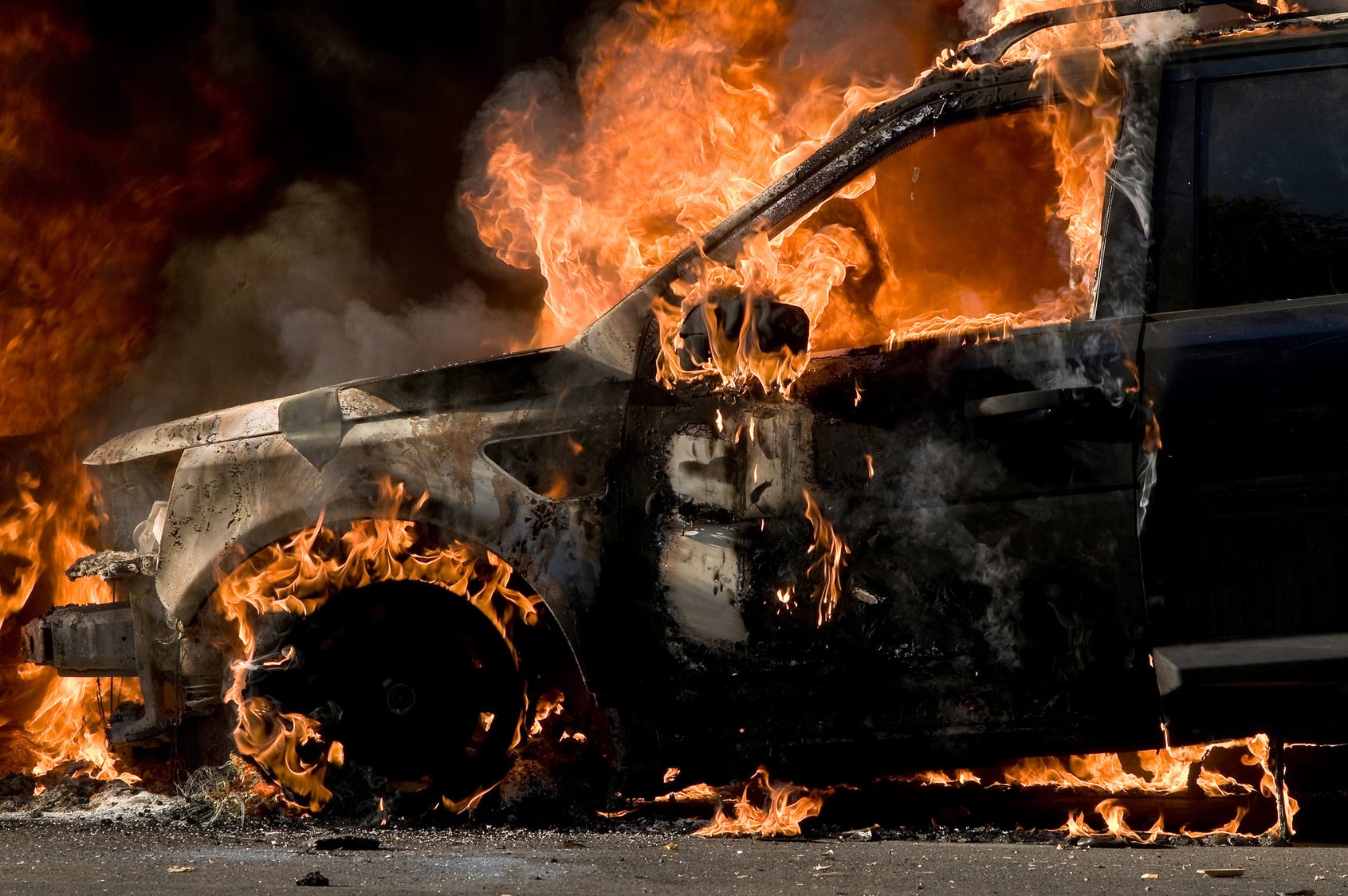[ad_1]
You are driving on the highway. Suddenly you see smoke and flames coming from under the hood of your car. Insurance probably isn’t the biggest thing on your mind at that moment, so we’ll save that for last. First, let’s take a look at what you should do when your car catches fire while driving.
What do you do if your car catches fire?
Car fires are fairly common. The US Fire Administration (USFA) says that one in four fire department responses is a vehicle fire. They also say that the main cause of car fires is mechanical problems or design problems. Electrical wires and combustible fuels fuel the fires and make vehicle fires worse. Surprisingly, according to the USFA, fires resulting from collision rather than the crash itself are the leading cause of vehicular fatalities, and many injuries are caused by people trying to put out a fire. Do not do it.
Understand that this is a very dangerous situation. If you suspect your car is on fire, pull over to the side of the road immediately, turn off the engine and drive away. Don’t look under the hood. A rush of air can make a fire worse. Instead, get as far away from the car as possible. Car fires can burn as hot as 1,500 degrees and flames can come from a burning car 10 feet or more from the source. Other parts of your car such as tire rims, engine parts and axles can explode into deadly fragments, and fire can produce toxic gases including carbon monoxide. Although not as common as TV and movies might lead you to believe, gas tanks can explode, spray flammable fuel, or even explode on rare occasions. Your best bet: Head to safe ground, relax by the fire, call 911 and wait for the experts to show up.
How do you negotiate with your insurance company after a fire?
Let’s say your car catches fire. You’re fine, but your car looks like the bottom of a barbecue. Your car insurance will pay for all of this, right? Maybe not. Unless you have comprehensive coverage, your primary policy will only cover fire damage from collision. As we mentioned in our previous article about car fireInsurance companies are very skeptical of automatic car fires. Even if you have a comprehensive one, expect some scrutiny of your vehicle and your background before paying your claim.
Things can get a little dicey if the fire was caused by a mechanical failure. Depending on your policy, your insurance may pay for fire and smoke damage excluding the actual defective part. Say a faulty battery ignited a fire. The insurance will deduct the value of the battery from your claim.
Whether or not to repair the car is another decision your insurance will have to make. If your insurance company determines that the cost of repairs exceeds a percentage of its appraised value, it will offer you the actual cash value of the car, less the deductible. Before accepting any payments, do your own research into the value of your car and bring it up to the insurance company if you have a dispute.
[ad_2]
Source link
